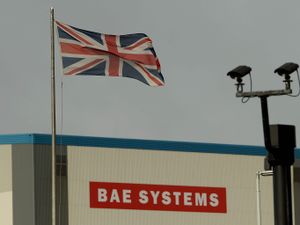Rhodes on old chestnuts, fearless navvies and why carrots are sometimes better than sticks
Read the latest column from Peter Rhodes.

The longer you work in journalism, the more you realise that some stories are seemingly on a time-loop, appearing, vanishing and reappearing on some great cosmic cycle. Over the years I've lost count of how many stories keep coming back, but going nowhere. Like the story about “magic bullets” to fight cancer. Or the promise of painless dentistry. Or the prospect of electricity “too cheap to meter” from nuclear fusion.
And what's this? Another old chestnut has just raised its whiskery head: the Mystery of Stonehenge is solved. You reckon?
According to the latest incarnation of this yarn, researchers at Bournemouth University believe the stones are a “giant solar calendar mystically linked to ancient Egypt”. Well, maybe they are. But I hope to live long enough to see Stonehenge conclusively proved to be a large egg timer.
In its coverage, Sky News used archive photos of workmen repairing Stonehenge with mortar in the 1950s. As Sky notes like a nervous nanny, the images show: “ People walking on top of the stones without safety equipment or harnesses, with one casually smoking a pipe.” And it points out that the latest repairs will involve a scaffolding tower, high-viz jackets, hard hats and all the other trappings of modern safety awareness.
Back in the 1950s specialised clothing was almost unknown. Builders went to work in old trousers and tweed jackets, and allotment holders tended their plots wearing shiny old demob suits and waistcoats. And don't even think about scaffolders or you'll remind yourself of that iconic, heart-stopping 1932 photo of New York navvies eating their lunch while sitting on a girder 850 feet above Manhattan.
There was a time, believe it or not, when ordinary working blokes would have laughed like a drain at the very idea of wearing safety helmets and yellow jackets to work no more than 13 feet up on Salisbury Plain.
The Justice Secretary, Dominic Raab, says Vladimir Putin's commanders will be “hunted down” for war crimes. Let's just think this through, eh? If the average Russian colonel knows he faces 10 years behind bars he will be inclined to fight to the bitter end. The offer of an amnesty might just tempt him to join a coup against Putin. Carrots sometimes beat sticks.





